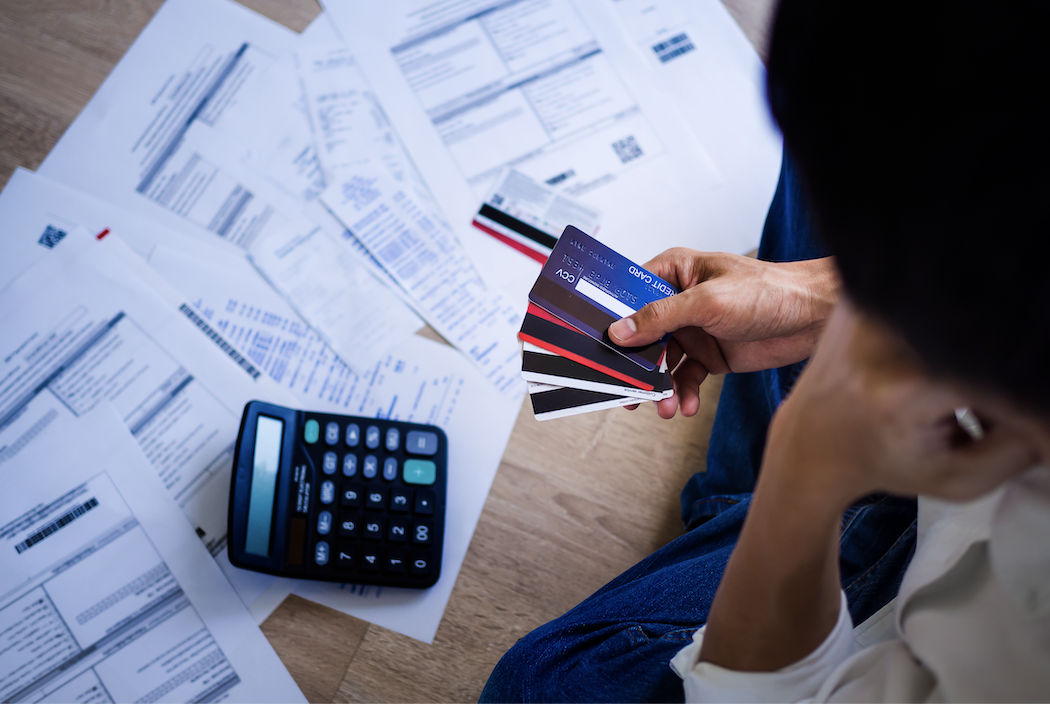Time to read : 5 Minutes
Meet Some Real People Who Got In And Out Of Debt
Debt is a fact of life for many people. According to the Reserve Bank of Australia (RBA), the average household credit-to-income ratio is currently around 150 percent, meaning most Aussie households are spending much more than they make.
But not all debt is created equal.
👍🏽 Good debt is usually associated with an asset, such as a home loan or investment property.
🙅🏽 Bad debt, on the other hand, is often used to finance items that depreciate in value – think cars or things which are often put on a credit card.
Lifting the stigma (even on bad debt)
Understanding and talking about your financial position can be really helpful in getting you out of debt.
Editor Tara had no idea how she accrued so much debt,
“I had $10K worth of credit card debt in my thirties and it constantly stressed me out. The worst part is, I can’t entirely remember what I spent that money on. So just before my fortieth birthday, I decided I absolutely had to clear it. I took out a low interest personal loan, tracked my spending more closely and paid it off in 18 months. I now have a debit card and I'm pretty strict about using my own money.”
Tech entrepreneur Adam spent money he didn't have on his new business,
“I accrued a lot of debt when I was trying to get my startup off the ground. It felt easy to justify it because it’s not like I was using my card to pay for expensive dinners or luxury trips — it was all in pursuit of my business. But when things slowed down and I had to scale back, I owed a lot.”
Fashion designer Tony got caught in a credit card trap,
"I was living in London as a student and used my gold card to go out for dinners, buy groceries and pay for odds and ends, but before I knew it I had a 15K debt. Thankfully, my parents paid it off and now I am very careful about any debt I take on."
✋The thing is, we’ve all done it.
Okay, maybe there’s that one friend who has pinched pennies their entire life, but most of us have overstretched at some point. And not always over such noble pursuits. Those Beyonce tickets are expensive, after all.
The first thing to do is forgive yourself. Most people ignore debt because of the negative emotions it presents us with. Denial, stress, shame, anger, depression and anxiety are chief among them.
Seven steps to tackle your debt
The first step to getting out of debt is understanding exactly how much you owe.
Make a list of all your bills, including the interest rate and minimum monthly repayment for each one. This will give you an idea of what you’re paying (in both principal and interest) and where to begin.
Compare interest repayments. Interest charges can make it difficult to get ahead on your debt repayments. It's important to know the interest rates for each of your loans and credit cards, and shop around to ensure you’re getting the best deal.
Consider consolidating your debt – If you have multiple debts with different interest rates, you may be able to save money by consolidating them into one loan with a lower interest rate or transferring them onto a low interest rate credit card. This can make it easier to manage your repayments and settle your debts sooner.
Pay off the debt with the highest interest rate first. Exorbitant interest rates can make paying of the principal part of your debt almost impossible. The idea here is to eventually minimise your interest payments so that you can focus on other debts faster.
Make extra repayments. It may seem like there’s no room in your budget, but making extra repayments, no matter how small, can help you get out of debt a whole lot faster. Even an extra $20 or $50 per week can make a big difference over time.
Take advantage of Covid relief options. Most banks, providers and lenders are trying to be flexible for customers financially impacted by the pandemic.
Talk to your creditors and be honest about the fact that you’re struggling to pay your bills and debts. Many offer hardship assistance or delayed payment options with no impact to your credit score or long-term interest rate.
Seek out (free) financial advice
If you’re still feeling overwhelmed (or worse) by your debt, the National Debt Helpline offers free financial counselling and live chat options to help you get back on track.
🧰 The federal government’s Financial Information Service also provides a range of tools and support to help you make informed decisions about your finances, including a savings planner, live webinars and personal appointments with an expert.
The bottom line
Everyone's journey out of debt is different, so it's important to find a strategy that works for you. Just don’t let that strategy be avoidance.
☎️ If you're struggling to manage your debts, talk to your creditors or seek professional financial advice. Making a plan and taking action can help you get on top of your debts and start moving forward, one step at a time.
